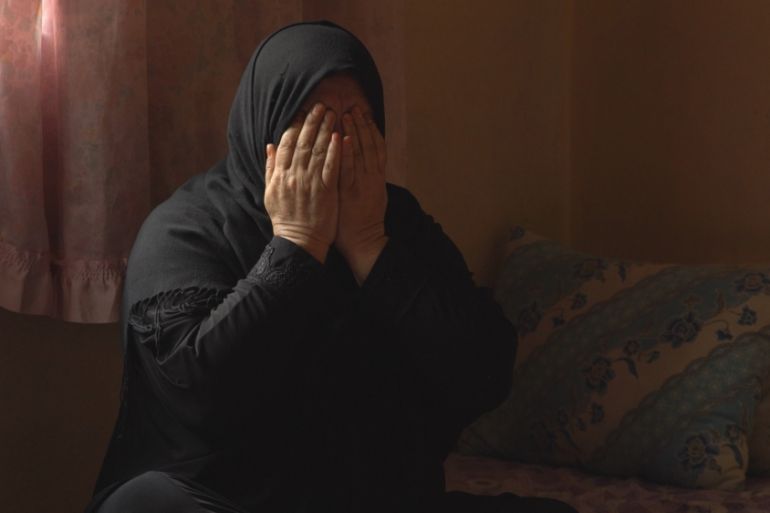
Silent War: How Rape Became a Weapon in Syria
Syrian women share personal testimonies of rape by regime soldiers.
Editor’s note: This film is no longer available to view online.
“I didn’t know what was happening to me except that I was screaming and I was in pain. I felt like my thoughts no longer belonged to my body and my body no longer to my soul. My soul was elsewhere and my body was in the hands of the monsters.”
Keep reading
list of 4 itemsKey takeaways from day 18 of Donald Trump’s New York hush money trial
Key takeaways as Cohen faces more questioning on day 17 of Trump’s trial
In Mexico’s election, candidates grapple with the search for the missing
In Silent War, Syrian women break the taboo surrounding rape to speak openly about the abuse they endured at the hands of pro-regime militias and government soldiers.
In basements, prisons and their own homes, they were repeatedly raped for “crimes” such as participating in peaceful demonstrations or to send a message to their husbands, fathers and brothers.
“Every free citizen or any citizen engaged in the revolution has had one of the women of his family sent to detention … His sister, his daughter, his wife. The message is, ‘Either you surrender or we keep your wife or your daughter’. The regime used rape to humiliate the Syrian men,” explains one woman who served in the army of Syrian President Bashar al-Assad for eight years before defecting.
They started to rape women at roadblocks, at home in front of their husbands, their children …. At some point, the regime took a new approach. It recorded videos of the rapes of women in detention and sent them to the fighters.
“They started to rape women at roadblocks, at home in front of their husbands, their children …. At some point, the regime took a new approach. It recorded videos of the rapes of women in detention and sent them to the fighters.”
Soldiers were, in turn, encouraged to film themselves raping women so that the videos could be sent to the women’s families.
It is a topic filmmaker Manon Loizeau has long wanted to tackle.
“Since I made my first film in Homs in 2011, I have thought about how to make a film about the unnameable,” she says. “The family I was staying with took me to a house where there lived a woman who had just been released from the torture cells of Bashar al-Assad. She stood pale and frail by the door, then left without saying a word, too afraid to speak. For all those years, I wondered how to tell this story.”
Through their harrowing personal testimonies, the women in Silent War tell not only the story of what takes place in these cells but of what happens when they leave them, returning to a society that stigmatises, rejects and punishes them for being raped, sometimes to the point of death.
“The regime raped her and society rejects her. If it happens to you, then you must die. But it happened to me and I did not die. What can I do?” asks one woman.
“We are trapped between traditions on one side and the regime on the other. And we die caught in between.”
![At first, rape as a weapon of war in Syria was committed only inside prisons, but it became more widespread and systematic [Laurent Stoop/Al Jazeera]](/wp-content/uploads/2018/06/aee699ae1acc4ad7b1d56663f50a5a90_18.jpeg)